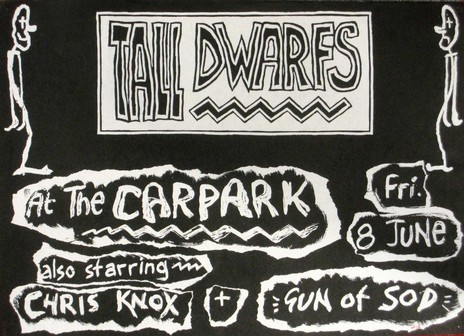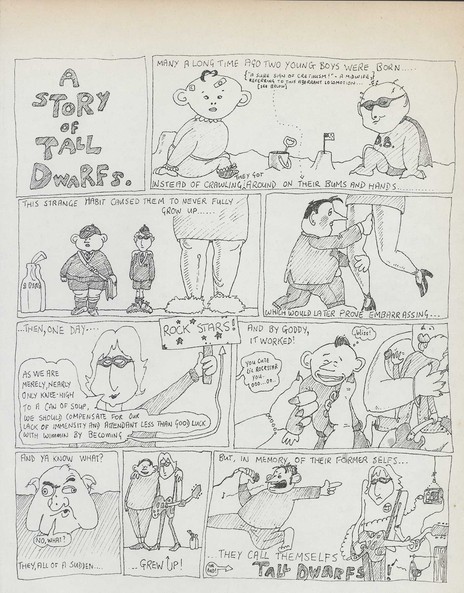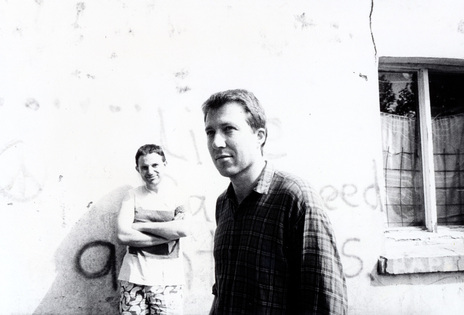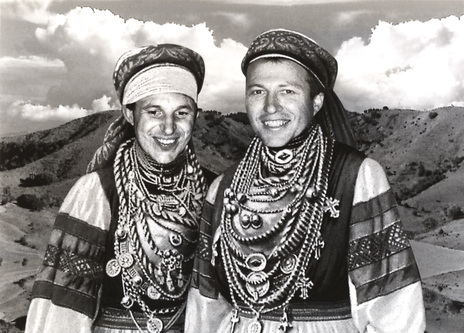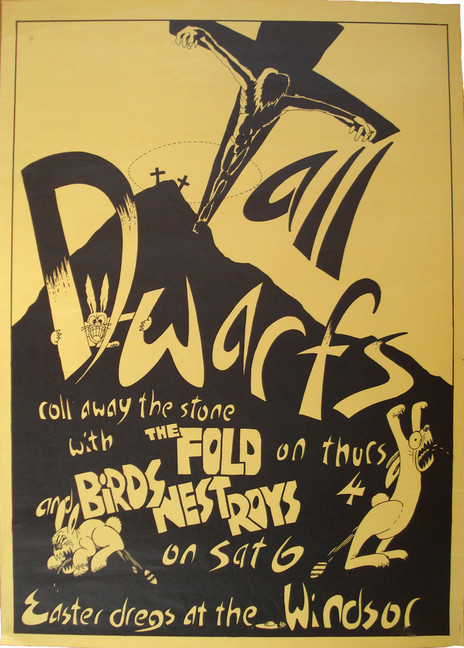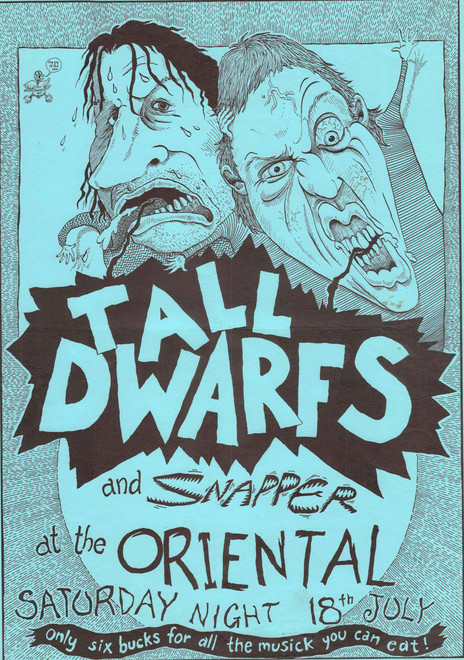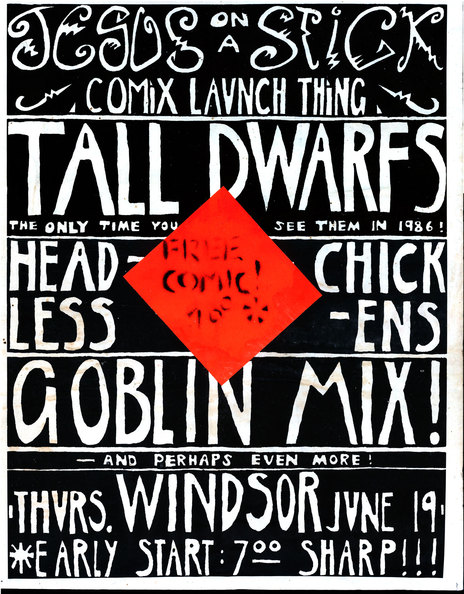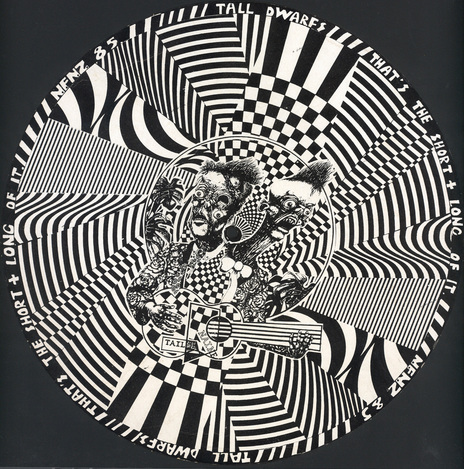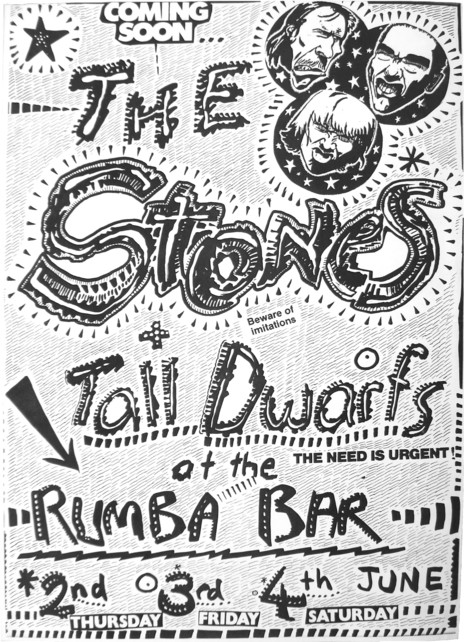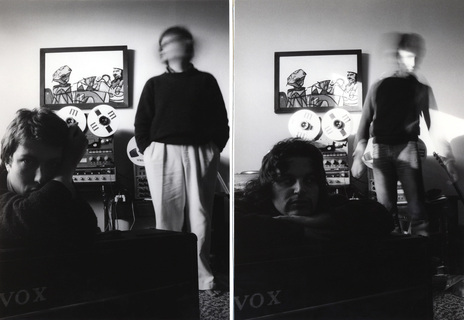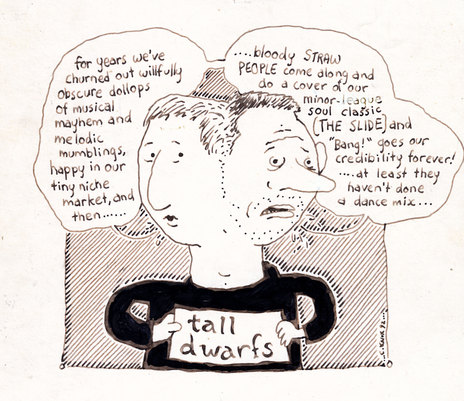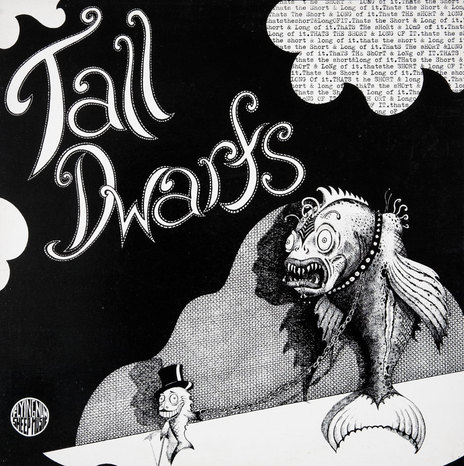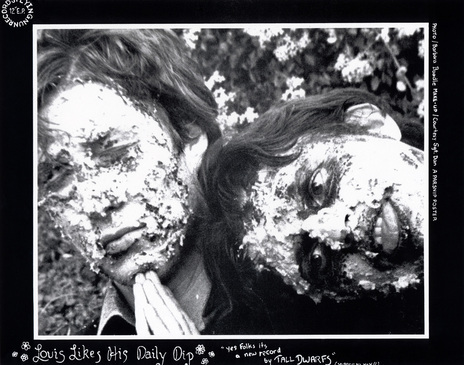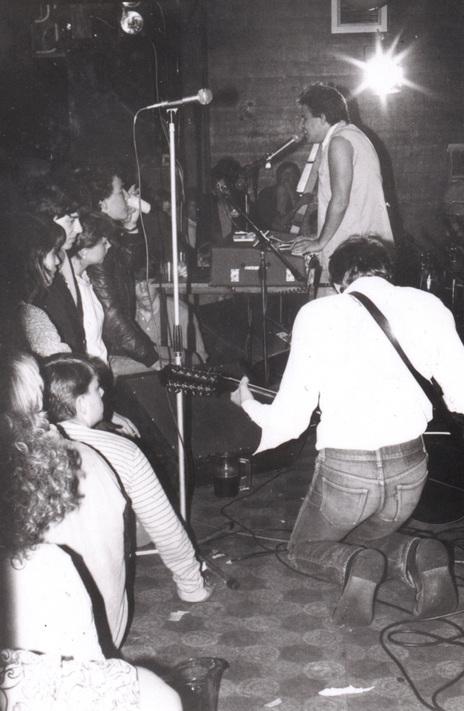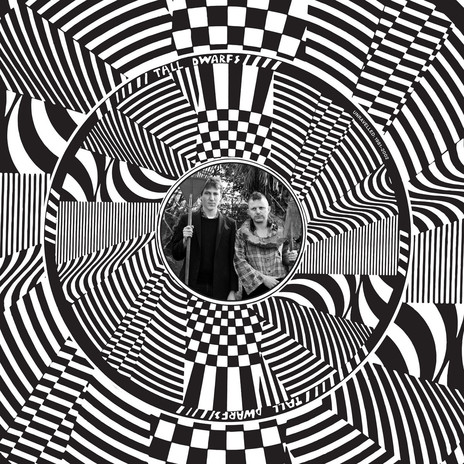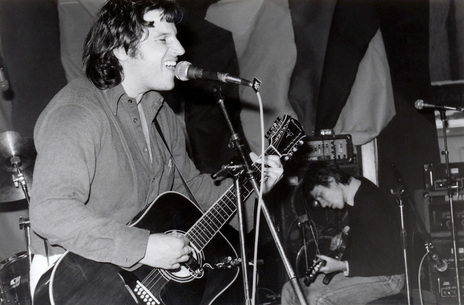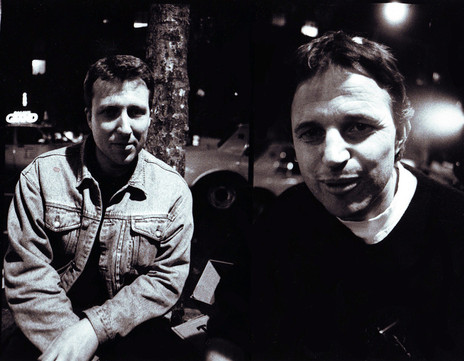In August 1977 Knox was working in a Dunedin record shop when Bathgate and Mike Dooley came in search of a single by The Damned. Within weeks, they had formed The Enemy (with Mick Dawson on bass). Over the next 12 months, they combined melody and structure with punk energy, attitude and aggression and evolved beyond their wildest dreams. Knox emerged as a striking vocalist and a peerless front man – with guitarist Bathgate a perfect musical foil.
The Enemy mutated into Toy Love in late 1978. Much loved in New Zealand, they were lured to Sydney with the promise of an album and London as their next stop. But pub rock Australia never understood them and their spirit was crushed by a relentless schedule of early week gigs, ill-matched support slots – and an album overwhelmed by the wrong environment and too much technology that fell far short of their expectations. By late 1980 Toy Love was history.
Knox retrenched, fortuitously acquired a TEAC 4-track reel-to-reel tape recorder following an inheritance, and began experimenting with making and recording his own music. His first solo forays were later released by Flying Nun as Songs for Cleaning Guppies (1982) but he was also keen to continue his association with Bathgate. The result was an initially tentative partnership christened the Tall Dwarfs.
Both wanted nothing more to do with the mainstream music industry with Knox bluntly summing up their attitude on the Radio With Pictures feature ‘A Pointless Exercise’ when he said, “The business side of rock and roll is totally 100% despicable and the further away I personally get away from it, in the months since Toy Love broke up, the more disgusting it seems in retrospect.”
Their home-recorded debut EP Three Songs (1981) on the Furtive label established a blueprint they have embellished over the years but never radically altered. It was a resolutely lo-fi, DIY operation marrying melody and edgier sounds with Knox’s distinctive vocals – and it had at least one bona fide classic in ‘Nothing’s Going to Happen’.
Early live performances were a more ramshackle work in progress. Knox described them in an interview with American magazine Forced Exposure as “two minutes of song followed by five minutes of fucking around” and they dismayed many Toy Love fans – but the pair had no interest in a career spent in pubs cranking out ‘Pull Down the Shades’.
Knox used his 4-track to shape the sound of a generation of New Zealand alternative musicians.
Bathgate moved to Christchurch and the Tall Dwarfs became a long distance collaboration with songwriting by post and get-togethers every six months or so to record. Meanwhile, Knox used his 4-track to shape the sound of a generation of New Zealand alternative musicians with his recordings of a host of Flying Nun acts – and became the Auckland end of the label’s embryonic operation.
A steady succession of EPs allowed Tall Dwarfs to develop their sound, craft and mastery of the 4-track. Knox had felt frustrated at times in Toy Love without an instrument to play. For Three Songs he was credited with rattles, wineglasses, carton and “bashed” and “discord” guitar. His guitar contributions became more accomplished but percussion was problematic. Knox said he couldn’t drum for more than 15 seconds and had little inclination to try. Without a drummer, they improvised. On their 3rd EP Canned Music (1983), “wood” and “oven tray” joined the objects hit or bashed in search of a beat – but ‘Turning Brown and Torn in Two’ looped a slowed down vocal to stunning effect. Similar loops were followed by keyboard-based rhythms (often wilfully cheap and cheesy) and became an integral part of future recordings.
That's The Short And Long Of It (1985) was finally an album of sorts (on one side two songs play at 45rpm and on the other, 10 songs play at 33rpm) and saw them in a studio for the first time. It was also notable for ‘Nothing’s Going to Stop It’ – a widescreen version of ‘Nothing’s Going to Happen’ credited to an all-star, 20-strong Wall of Dwarfs. Throw a Sickie (1986) was a back to basics EP but Dogma (1987) was another studio recording and reunited them with Toy Love colleagues Paul Kean and Mike Dooley. Their first proper album Weeville followed in 1990.
Percussion remained a challenge – or an opportunity. On their third album 3 EPs (1994) they solicited backing tracks from their fans – and the results appeared on Stumpy (1996). Credited to the International Tall Dwarfs, it included contributions from Paris, Amsterdam, Croatia, Vancouver, Edinburgh, Hamilton and Scranton.
They were the International Tall Dwarfs again on The Sky Above, The Mud Below (2002) in a series of bonus tracks featuring members of The Clean, Neutral Milk Hotel and The Verlaines. The album also marked their belated introduction to the digital world of Pro Tools (but they remained analogue fans).
At their heart, the Tall Dwarfs are two passionate music fans inspired by the sixties and punk with more than a passing interest in The Beatles and The Velvet Underground.
At their heart, the Tall Dwarfs are two passionate music fans inspired by the sixties and punk with more than a passing interest in The Beatles and The Velvet Underground (both bands capable of great beauty and the occasional barrage of sound). There are also echoes of acts as diverse as T Rex, Captain Beefheart and The Incredible String Band – and they have expressed a fondness for “that sixties period when everybody was exploding with weird ideas, using instruments from sitar to steel pedal and getting away with it.”
Bathgate and Knox are also both accomplished visual artists – and posters, record and CD covers and inserts have allowed them to put an equally distinctive visual stamp on their music. Knox also honed his video making skills on Tall Dwarfs tracks as he explored techniques ranging from simple stop-frame animations to complex multi-layered creations worthy of Len Lye.
The Knox-Bathgate partnership had run for 32 years when Knox suffered a debilitating stroke in 2009. An outpouring of sympathy and concern came from all over the world – and particularly from influential American acts happy to admit their debt to him and Tall Dwarfs. Contributors to the Stroke benefit album included Stephin Merritt (Magnetic Fields), Portastatic, Bill Callahan, Yo La Tengo, AC Newman, Lambchop, The Mountain Goats, Will Oldham, Lou Barlow – and the American edition and concert lured Neutral Milk Hotel’s Jeff Mangum out of a lengthy, self-enforced retirement.
Stroke also featured a new Tall Dwarfs song with wordless vocals from Knox. More backing tracks were recorded; when, and how, they will be completed remains to be seen. In the meantime, their dizzying back catalogue encompasses invention, quirk, melody, noise, humour, passion and the occasional bout of bloody mindedness.
